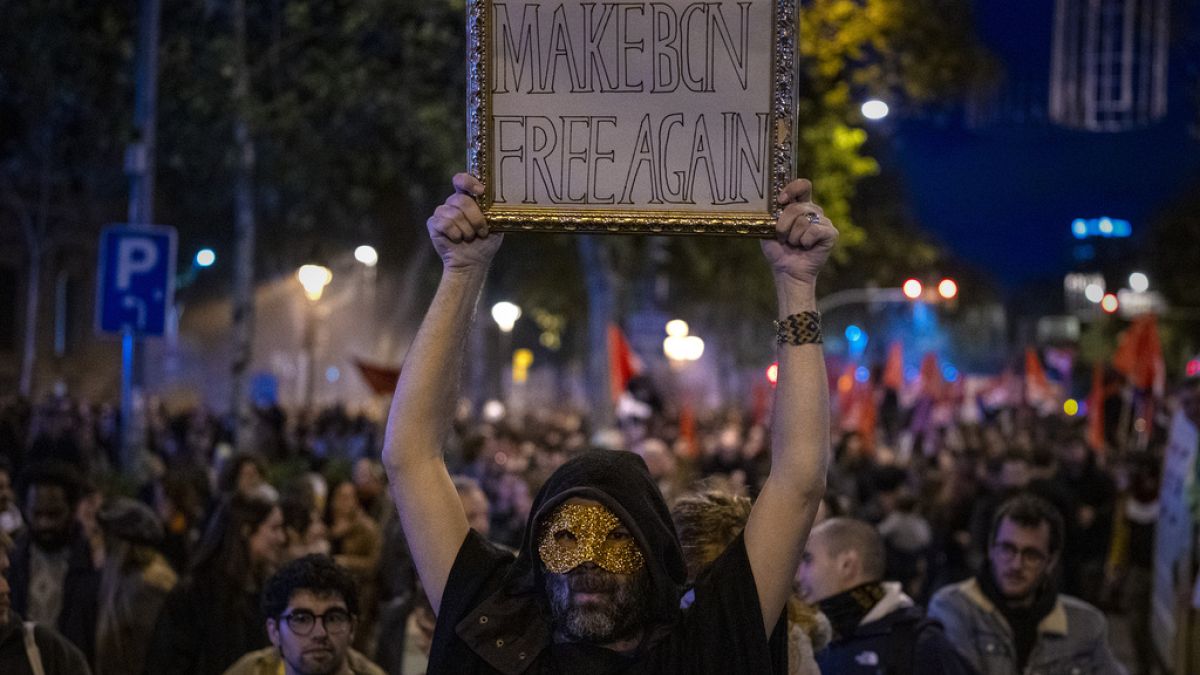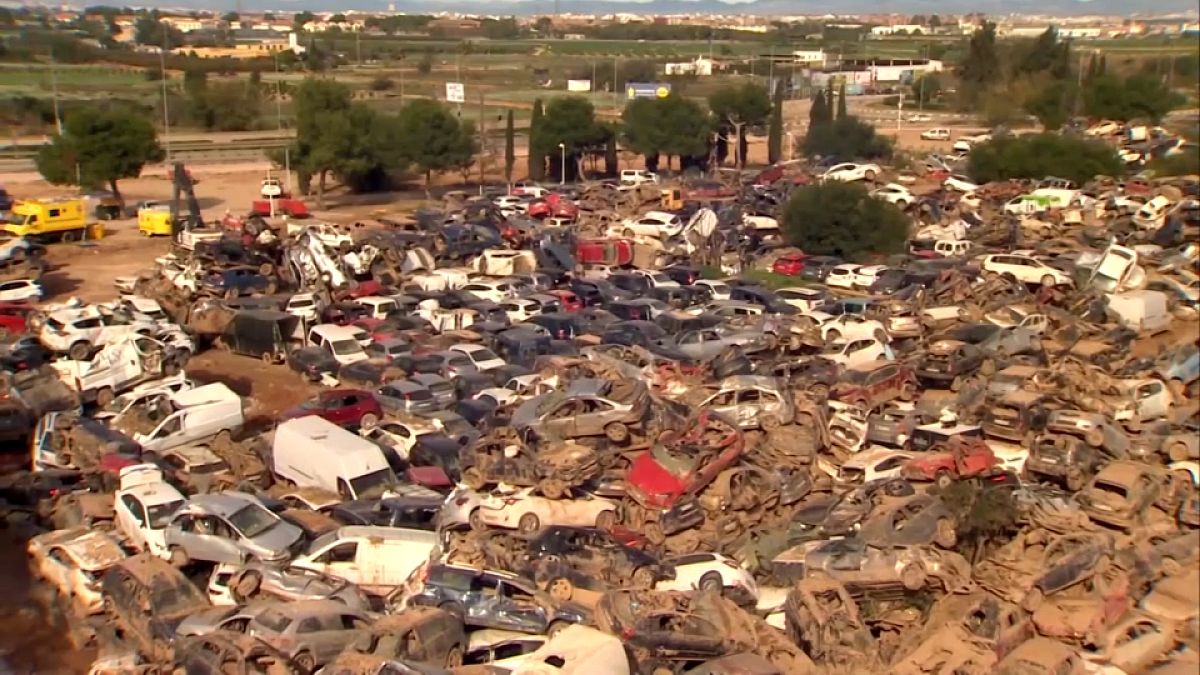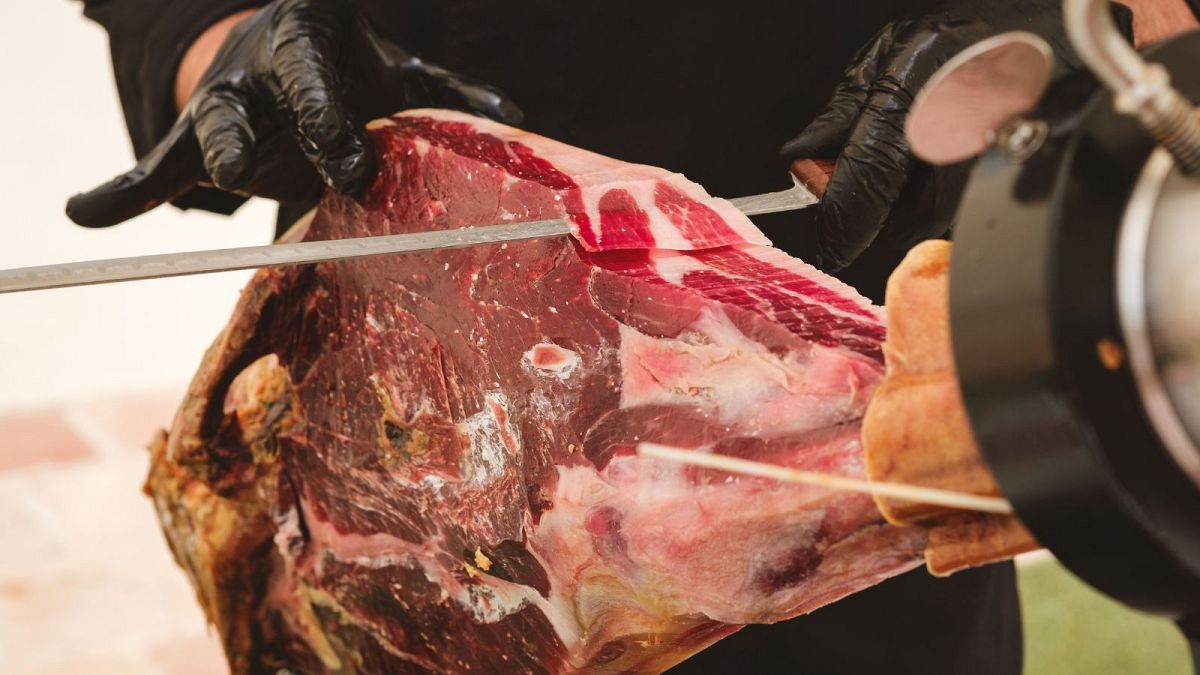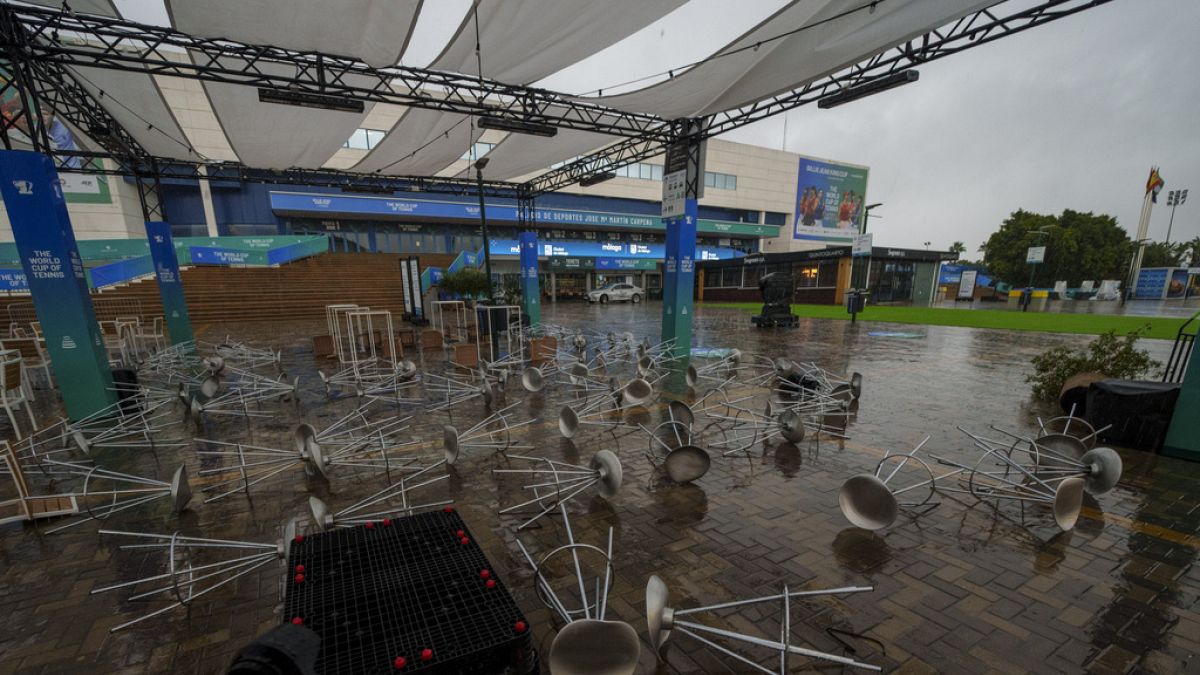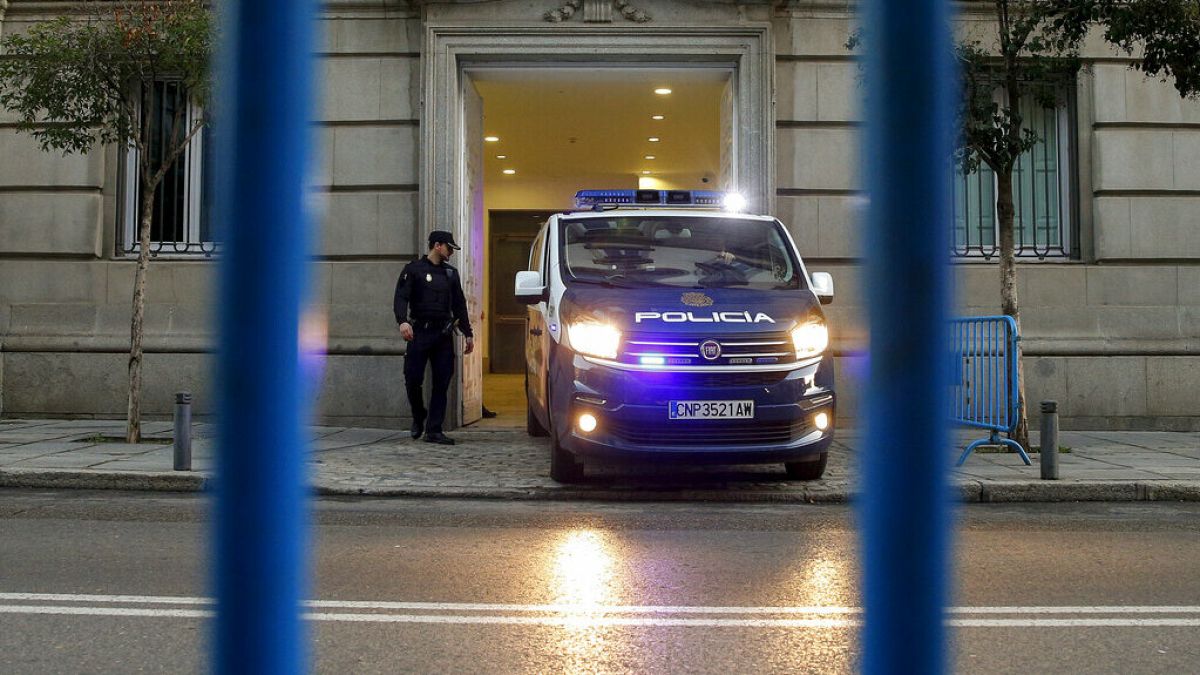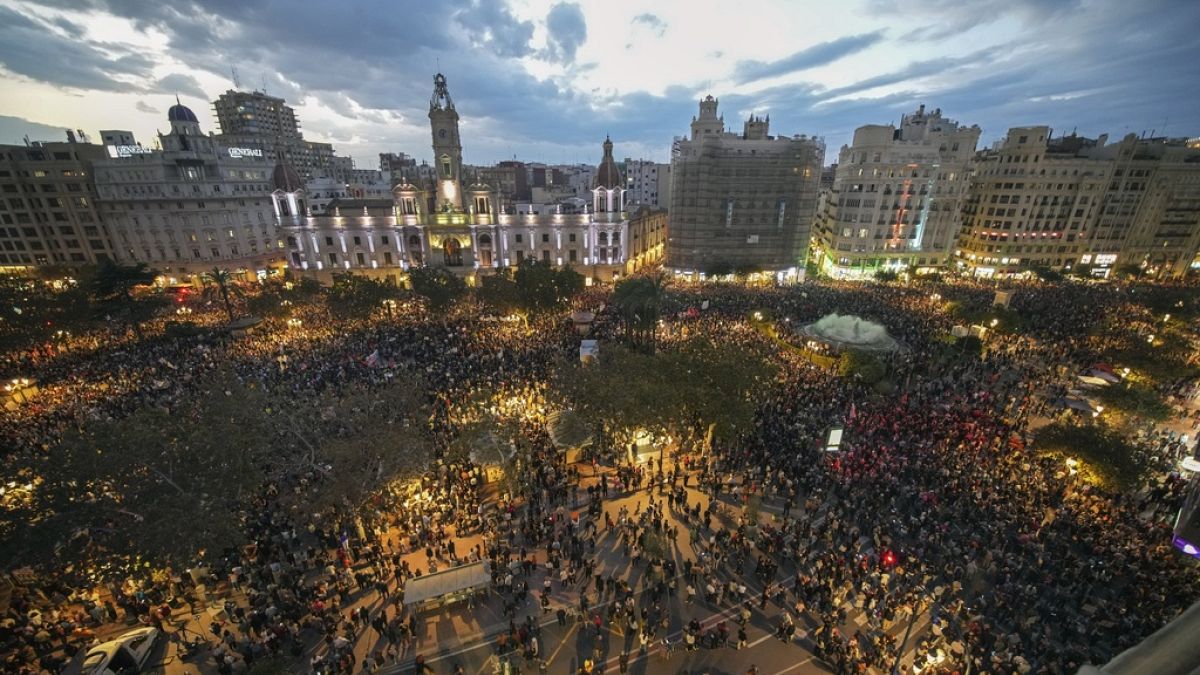World Cup kiss scandal: Why hasn’t Rubiales resigned yet?

Luis Rubiales continues to cling to his position as the most powerful man in Spanish football. The internal structure of a “feudal dictatorship” and the pressure exerted on Jenni Hermoso have made this possible.
Ever since Luis Rubiales kissed Spain’s Jenni Hermoso on the lips without her consent after the Women’s World Cup final in Australia, everything around him has been falling apart.
Yet the most powerful figure in Spanish football continues to cling to his position, tarnishing the success of the women’s team and threatening to perpetuate sexist acts in the women’s game.
After an extraordinary general meeting of the Spanish Football Federation (RFEF), at which Rubiales was expected to resign, the president ended up claiming that he was the victim of a witch-hunt.
“I will not resign,” he repeated up to five times to the applause of the audience.
He spoke of “social assassination” and his mother went on hunger strike until Jenni Hermoso “tells the truth”. All this while the world of women’s football accuses the Spanish federation of “profound misogyny”.
As the world follows the events unfolding in Spain like a telenovela, the big question is why Rubiales hasn’t resigned yet.
Why is it so difficult to kick Rubiales out?
“He will not resign, it would be a big surprise if he did. He’s going to defend his job to the death,” Rafa Fernández, a sports journalist at Spanish broadcaster Onda Cero, told Euronews.
While awaiting Rubiales’ resignation, many are wondering why the Spanish federation did not take a stronger stance.
As a private organisation with no public funding, the RFEF can make independent decisions, even though it represents Spain in football competitions.
Its internal structure makes democratic decision-making difficult. It is governed by a 140-member assembly, which is weighted towards the 19 regional presidents. Of the 140 members, only six are women.
Most of the regional presidents applauded enthusiastically at the federation’s extraordinary meeting when Rubiales announced that he would not resign.
Days later, they issued a statement unanimously calling for his resignation, but they have not activated the no-confidence vote that could remove him from office.
“They try to avoid it at all costs, it is a feudal dictatorship where a lot of money moves. They work like a closed family in which they want to maintain the internal structure,” says Fernández.
“The big players who want to prevent this system from changing are themselves, who have found a way of living that pays,” he adds.
Among them is Rubiales, who earns €371,000 a year (net) as RFEF president, plus €250,000 from UEFA. The federation also pays him a €3,000 per month housing allowance.
Who has the power to sack Rubiales?
Following FIFA’s decision to suspend Spain’s football chief for three months, the Spanish federation held an emergency meeting.
“If it hadn’t been for that, Rubiales would remain president, but this decision has blown him out of the water,” said Fernández.
From then on, there was talk of a possible no-confidence vote, the only way to oust him internally.
According to the Onda Cero journalist, the no-confidence vote needs the support of a third of the assembly to be tabled and two-thirds, or 94 votes, to pass.
“The problem is that it requires consensus and at the moment there is a lot of internal disagreement. For this to happen, they need time and a candidate who can build consensus,” says Fernández.
One option could be Pedro Rocha, the interim president since Rubiales’ suspension, although he is part of the hard core of Rubiales supporters who still control the federation.
“The 19 territorial presidents are the ones responsible for planning the new roadmap. How can it be that in the biggest crisis facing the federation, they are the only ones to decide? Because they are the ones who need this system to survive,” he adds.
If the internal route seems unlikely, there is an external one.
Spain’s Higher Council for Sports (CSD) has referred the complaint against Rubiales to the Sports Administrative Court (TAD), which has sanctioning powers. While the case is being resolved, the CSD can suspend Rubiales from his duties.
The Sports court has asked for more documents and more time to make a decision. An announcement could come this Thursday afternoon.
If this does not work, the only option left is the criminal route, with the active case in the Public Prosecutor’s Office, which all depends on what Jenni Hermoso decides to do next.
What about the possible sexual aggression allegations?
Prosecutors at the Spanish National Court have opened an investigation against Rubiales to see if there is enough evidence to charge him with sexual assault.
The office has the power to investigate crimes committed abroad, but Jenni Hermoso needs to file a formal complaint within 15 days for the case to move forward.
“I think the complaint will fall through the cracks. They are putting a lot of pressure on Hermoso and I doubt she is prepared for such a fight,” says Fernandez.
The offence carries a prison sentence of between one and four years, but this is only an initial investigation by the prosecutor’s office to determine whether there is sufficient evidence to file charges.
Sexual abuse – the French football connection
“Come to my place for dinner tonight.” “I prefer blondes, so if you’re up for it…” “You’re quite fleshy, I would definitely let you into my bed.”
Just six months ago, Noël Le Graët, the strongman of French football and president of the French Football Federation, found himself on the ropes after a devastating audit revealed his centralised exercise of power and inappropriate behaviour towards women.
It all began when So Foot magazine published extracts of sexual messages allegedly sent by Le Graët to female employees.
The French Ministry of Sport commissioned an investigation by the General Inspectorate, which took five months to complete. The Paris prosecutor’s office also became involved, opening a preliminary investigation into moral and sexual harassment.
Much has been written about one of the most sordid episodes in French football.
Journalist Romain Molina’s report, based on interviews and footage, showed that Le Graët was only the beginning of the French federation’s abuses.
He uncovered several cases of sexual abuse, blackmail and harassment, including of underage players, involving coaches, scouts, agents and senior officials working in the French top flight.
The former president of the French federation finally resigned in February last year after clinging on to his post for as long as he could.
Source: Euro News


